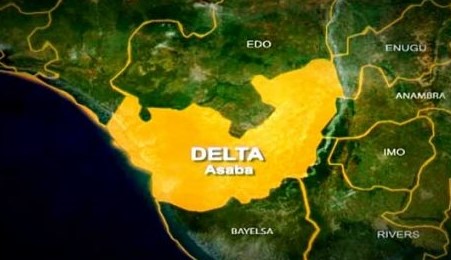The Delta State Government has announced that it is investing over ₦5 billion in its state-owned media organisations as part of efforts to strengthen public communication and maintain a positive image for the administration.
The Commissioner for Works (Rural Roads) and Public Information, Mr. Charles Aniagwu, disclosed this on Monday during the defence of the ministry’s 2026 budget proposal before the Ministry of Economic Planning in Asaba.
Aniagwu explained that the government’s decision to channel such a huge investment into its media sector was guided by the need to prepare for heightened political activities expected as the state approaches 2027, a year that will likely mark the build-up to another election season.
He said that the Ministry of Information’s proposed expenditure for 2026 stands at a little over ₦5 billion, with ₦2.073 billion allocated for recurrent expenditure and ₦3 billion for capital projects.
“As we approach 2027, there will be heightened political activities,” Aniagwu said. “Our ministry must be equipped to engage the public effectively and ensure that the government’s image remains positive in the eyes of the people.”
According to him, the government is not just interested in carrying out partial refurbishments but is planning a full rebranding of its media houses to meet global broadcasting standards.
“We want to give these institutions a brand-new look, not just engage in patching or fixing. His Excellency, the Governor, believes that the time has come for a paradigm shift and a total package that will rebrand our media houses in line with the MORE Agenda,” Aniagwu explained.
The MORE Agenda, an acronym for Meaningful Development, Opportunities for All, Realistic Reforms, and Enhanced Peace and Security, is the policy framework of Governor Sheriff Oborevwori’s administration aimed at promoting inclusive growth across the state.
Aniagwu added that the state government’s earlier decision to embark on a comprehensive restructuring of its media organisations had slowed down the implementation of some projects in the ministry’s 2025 budget. He said that rather than carrying out piecemeal repairs, the administration decided to pursue full-scale restructuring to achieve long-term results.
He also highlighted some operational challenges confronting the ministry, including lack of mobility and inadequate infrastructure across departments.
“At the moment, even my Permanent Secretary does not have an official vehicle,” the commissioner said. “We are hoping that the 2026 budget will address these gaps to make the ministry more functional.”
Aniagwu further stressed that a vibrant and well-equipped state media structure was essential for effective communication between the government and the people. He said the ministry’s goal was to ensure that government activities are properly documented, reported, and disseminated through trusted platforms owned by the state.
The commissioner maintained that the government was determined to reposition its media arms into modern, self-sustaining institutions capable of competing with private broadcasters and print organisations across Nigeria.
“The governor has made it clear that Delta’s public institutions, including its media, must not lag behind,” he said. “We are setting up an efficient communication system that can project government policies transparently, counter misinformation, and connect with citizens in real time.”
On his part, the Commissioner for Economic Planning, Mr. Sonny Ekedayen, commended Aniagwu and his team for their presentation and assured that the ministry’s proposals would receive thorough consideration.
Ekedayen encouraged the Ministry of Information to explore partnerships with private media operators and investors to enhance sustainability and reduce overdependence on government subventions.
“The committee will look into your proposals with a view to enhancing them,” he said. “I also encourage the ministry to expand its activities to include partnerships with private businesses for better sustainability.”
Analysts say the government’s renewed focus on public communication could play a major role in shaping public perception, improving access to verified information, and promoting transparency.
The planned rebranding of The Pointer and the DBS stations also comes at a time when several state-owned media houses in Nigeria face challenges such as ageing equipment, declining audience reach, and poor funding.
If properly executed, the reforms could not only revitalise state-owned media but also provide more job opportunities for journalists, technicians, and other professionals in Delta State’s information sector.
